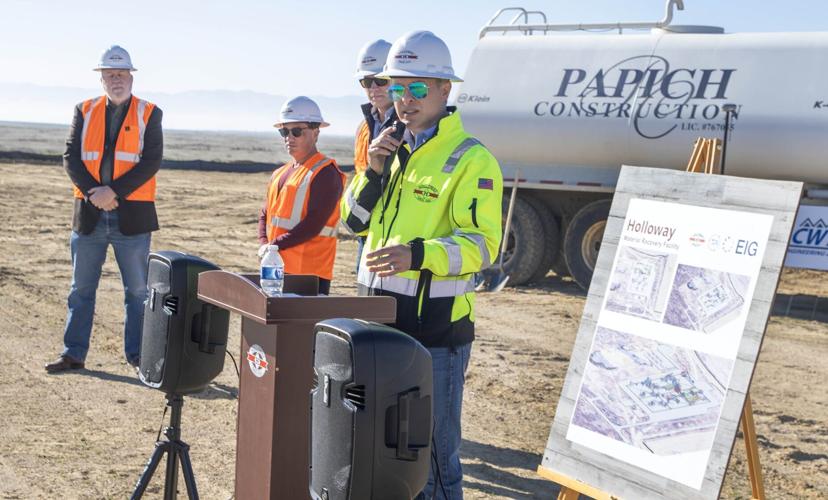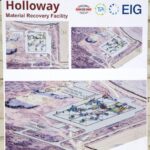
Photo by Rod Thornburg / The Californian
Article by John Cox / The Californian
Construction has begun on a $220 million, state-of-the-art recycling facility in Lost Hills that will extract a variety of plastics and metals from 2,000 tons per day of waste material from a nearby landfill.
Executives from the partnership behind the project hosted a celebration Friday of last month’s start of work after several years of environmental review and permitting. The plan is to begin operation in November.
The 8-acre Holloway Material Recovery Facility will separate out copper, aluminum, stainless steel and other metals. But the focus is on polymers — polypropylene, polystyrene, polyethylene, polycarbonate and acrylonitrile butadiene styrene — much of it from automobiles sent mostly from Southern California that have been shredded and deposited in Lost Hills over a period of decades.
Project officials said the result is a recycling system that is more environmentally sustainable than producing the material from scratch, using a process they said delivers on the promise of reusing hard-to-process plastics.
“This is the holy grail of what everybody’s trying to achieve,” said Ashley Day, managing director and co-founder of Atlanta-based TPI Industries, whose recycling technology uses a density-based separation technology to sift out the various waste constituents.
TPI’s partner on the project is the Holloway Group, based locally, and EIG Global Energy Partners, a Washington, D.C.-based institutional investor that financed the project.
Plastics coming out of the plant will initially be sold on the market, as will the metals. But expectations are that the polymers will be sent to an injection molding facility that will turn them into shipping pallets. The pallet manufacturing plant is planned to open within about a year after the recycling facility’s launch. No decision has been announced on where it will be built.
Another aspect of the project is that it will reduce greenhouse gas emissions and thereby earn marketable carbon credits.
The materials recovery system is anticipated to remove about 60% of the waste already deposited at Holloway’s landfill, with the remainder — things like foam, rubber and glass — going back into the landfill. In six or seven years, when the landfill’s contents will have been exhausted, Day said the company hopes to take in curbside recyclables that will then go through the same process.
TAV Technologies • TAV Commodities Trading • TAV Recycled Products • TAV Construction and Fabrication
© 2025



